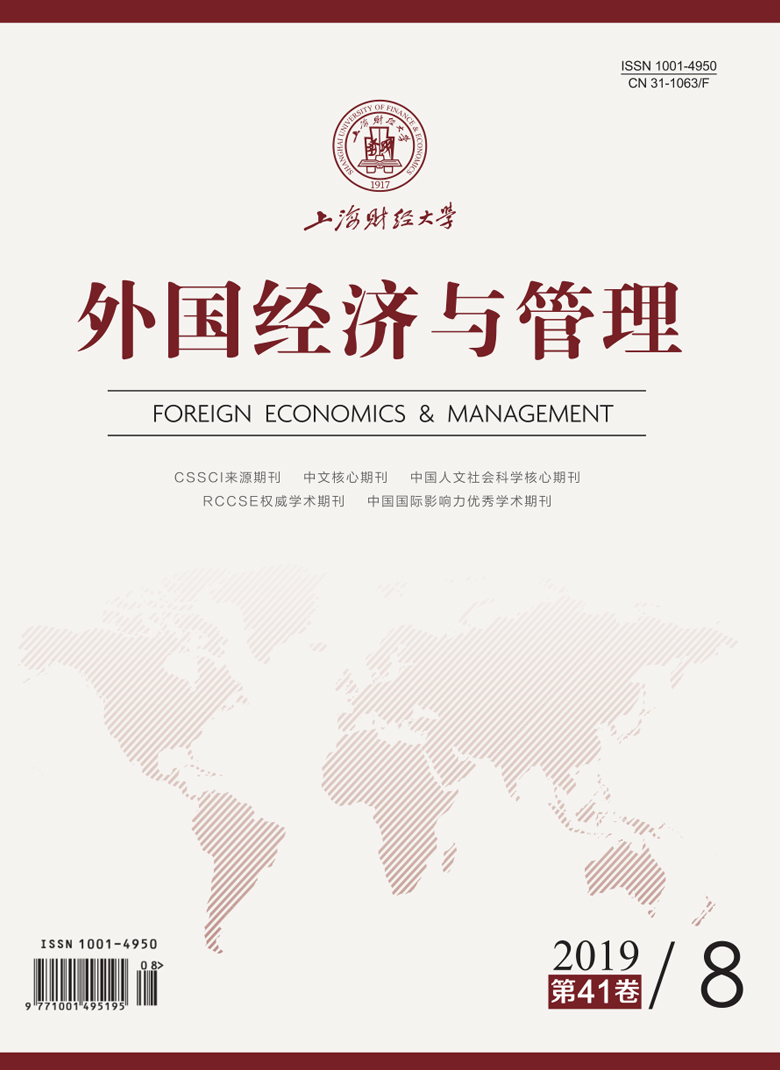企业师徒制在推动企业师徒个体发展和提升企业价值的同时,也会出现“留一手”“裙带帮派”等失调现象。指导关系的失调性研究是企业师徒制研究领域的一个重点前沿课题,本文以指导主体、内容转移为出发点,对失调性指导关系的概念内涵、决定机制和影响效应进行了系统梳理。文章从个体、师徒交互、任务、组织四个层面阐述了指导关系失调的形成机制,分析了师徒制失调对徒弟、师傅和组织的影响效应,厘清了失调性指导关系的研究脉络,形成了一套全面的失调性指导关系因果研究框架,并为失调性指导关系的未来研究提出了四个方面的针对性建议,以期为企业师徒制的理论研究和实践创新提供思路借鉴。
企业师徒制一定充满正能量吗?——失调性指导关系研究述评与展望
摘要
参考文献
2 陈涛, 朱智洺, 王铁男. 影子连带对企业知识转移影响研究: 以动态环境为调节变量[J]. 科技进步与对策,2014, (10): 131-137. DOI:10.6049/kjjbydc.2013070284
6 童俊, 王凯, 韩翼, 等. 师傅面子需要对徒弟敬业度的影响——师徒关系与情绪智力的作用[J]. 科技进步与对策,2017, (8): 140-146. DOI:10.6049/kjjbydc.2016110473
7 Allen T D, Eby L T, Poteet M L, et al. Career benefits associated with mentoring for protégés: A meta-analysis[J]. Journal of Applied Psychology,2004, 89(1): 127-136. DOI:10.1037/0021-9010.89.1.127
8 Allen T D, Johnson H A M, Xu X, et al. Mentoring and protégé narcissistic entitlement[J]. Journal of Career Development,2009, 35(4): 385-405. DOI:10.1177/0894845308327735
9 Allen T D, Poteet M L, Russell J E A. Protégé selection by mentors: What makes the difference?[J]. Journal of Organizational Behavior,2000, 21(3): 271-282. DOI:10.1002/(ISSN)1099-1379
10 Bolino M C, Varela J A, Bande B, et al. The impact of impression-management tactics on supervisor ratings of organizational citizenship behavior[J]. Journal of Organizational Behavior,2006, 27(3): 281-297. DOI:10.1002/job.379
11 Burk H G, Eby L T. What keeps people in mentoring relationships when bad things happen? A field study from the protégé’s perspective[J]. Journal of Vocational Behavior,2010, 77(3): 437-446. DOI:10.1016/j.jvb.2010.05.011
12 De Cremer D, Mayer D M, Van Dijke M, et al. When does self-sacrificial leadership motivate prosocial behavior? It depends on followers’ prevention focus[J]. Journal of Applied Psychology,2009, 94(4): 887-899. DOI:10.1037/a0014782
13 Dougherty T W, Dreher G F, Arunachalam V, et al. Mentor status, occupational context, and protégé career outcomes: Differential returns for males and females[J]. Journal of Vocational Behavior,2013, 83(3): 514-527. DOI:10.1016/j.jvb.2013.08.001
14 Eby L T, Allen T D, Evans S C, et al. Does mentoring matter? A multidisciplinary meta-analysis comparing mentored and non-mentored individuals[J]. Journal of Vocational Behavior,2008, 72(2): 254-267. DOI:10.1016/j.jvb.2007.04.005
15 Eby L T, Butts M M, Durley J, et al. Are bad experiences stronger than good ones in mentoring relationships? Evidence from the protégé and mentor perspective[J]. Journal of Vocational Behavior,2010, 77(1): 81-92. DOI:10.1016/j.jvb.2010.02.010
16 Eby L T, McManus S E. The protégé’s role in negative mentoring experiences[J]. Journal of Vocational Behavior,2004, 65(2): 255-275. DOI:10.1016/j.jvb.2003.07.001
17 Eby L T, McManus S E, Simon S A, et al. The protégé’s perspective regarding negative mentoring experiences: The development of a taxonomy[J]. Journal of Vocational Behavior,2000, 57(1): 1-21. DOI:10.1006/jvbe.1999.1726
18 Feldman D C. Toxic mentors or toxic protégés? A critical re-examination of dysfunctional mentoring[J]. Human Resource Management Review,1999, 9(3): 247-278. DOI:10.1016/S1053-4822(99)00021-2
19 Ferris G R, Treadway D C, Perrewé P L, et al. Political skill in organizations[J]. Journal of Management,2007, 33(3): 290-320. DOI:10.1177/0149206307300813
20 Ghosh R, Dierkes S, Falletta S. Incivility spiral in mentoring relationships: Reconceptualizing negative mentoring as deviant workplace behavior[J]. Advances in Developing Human Resources,2011, 13(1): 22-39. DOI:10.1177/1523422311410639
21 Herrbach O, Mignonac K, Richebe N. Undesired side effect? The promotion of non-commitment in formal vs. informal mentorships[J]. The International Journal of Human Resource Management,2011, 22(7): 1554-1569. DOI:10.1080/09585192.2011.561965
22 Husted K, Michailova S, Minbaeva D B, et al. Knowledge-sharing hostility and governance mechanisms: An empirical test[J]. Journal of Knowledge Management,2012, 16(5): 754-773. DOI:10.1108/13673271211262790
25 Kumar P, Irudayaraj I S F, Jomon M G, et al. The shadow of negative mentoring at the workplace: Is negative affect a mediator between mentoring experiences and a decline in organizational citizenship behaviour of the protégé?[J]. Management and Labour Studies,2013, 38(4): 357-371. DOI:10.1177/0258042X13513134
26 Labianca G, Brass D J. Exploring the social ledger: Negative relationships and negative asymmetry in social networks in organizations[J]. Academy of Management Review,2006, 31(3): 596-614. DOI:10.5465/amr.2006.21318920
27 Liu D, Wang S, Wayne S J. Is being a good learner enough? An examination of the interplay between learning goal orientation and impression management tactics on creativity[J]. Personnel Psychology,2015, 68(1): 109-142. DOI:10.1111/peps.2015.68.issue-1
28 Mahajan A, Toh S M. Group cultural values and political skills: A situationist perspective on interpersonal citizenship behaviors[J]. Journal of International Business Studies,2017, 48(1): 113-121. DOI:10.1057/s41267-016-0036-x
29 Mulder L B, Nelissen R M A. When rules really make a difference: The effect of cooperation rules and self-sacrificing leadership on moral norms in social dilemmas[J]. Journal of Business Ethics,2010, 95(S1): 57-72. DOI:10.1007/s10551-011-0795-z
30 Ragins B R, Cotton J L, Miller J S. Marginal mentoring: The effects of type of mentor, quality of relationship, and program design on work and career attitudes[J]. Academy of Management Journal,2000, 43(6): 1177-1194. DOI:10.2307/1556344
31 Rechberg I, Syed J. Ethical issues in knowledge management: Conflict of knowledge ownership[J]. Journal of Knowledge Management,2013, 17(6): 828-847. DOI:10.1108/JKM-06-2013-0232
32 Robinson S L, Rousseau D M. Violating the psychological contract: Not the exception but the norm[J]. Journal of Organizational Behavior,1994, 15(3): 245-259. DOI:10.1002/job.4030150306
33 Scandura T A. Dysfunctional mentoring relationships and outcomes[J]. Journal of Management,1998, 24(3): 449-467. DOI:10.1177/014920639802400307
34 Schmader T, Johns M, Forbes C. An integrated process model of stereotype threat effects on performance[J]. Psychological Review,2008, 115(2): 336-356. DOI:10.1037/0033-295X.115.2.336
35 Steele C M. A threat in the air: How stereotypes shape intellectual identity and performance[J]. American Psychologist,1997, 52(6): 613-629. DOI:10.1037/0003-066X.52.6.613
36 Topa G, Perez-Larrazabal J. Newcomers’ learning and co-worker undermining: Moderated mediation analysis[J]. Journal of Managerial Psychology,2016, 31(5): 914-929. DOI:10.1108/JMP-03-2015-0106
38 Yi J, Kwan H K, Hu Y L, et al. Revenge exacerbates the effects of interpersonal problems on mentors’ emotional exhaustion and work-family conflict: A self-defeating perspective[J]. Human Resource Management,2017, 56(5): 851-866. DOI:10.1002/hrm.2017.56.issue-5
引用本文
崔琦, 何燕珍. 企业师徒制一定充满正能量吗?——失调性指导关系研究述评与展望[J]. 外国经济与管理, 2019, 41(8): 73-85.
导出参考文献,格式为:






 6820
6820  8676
8676

